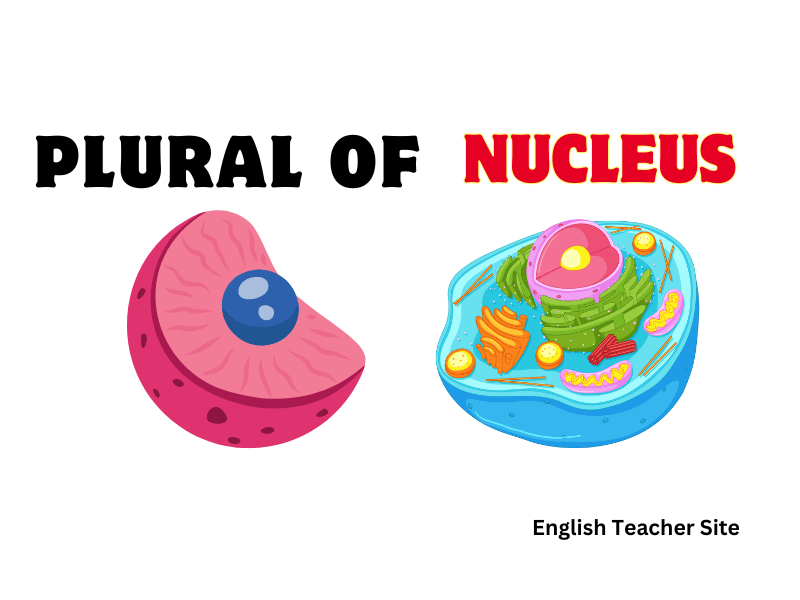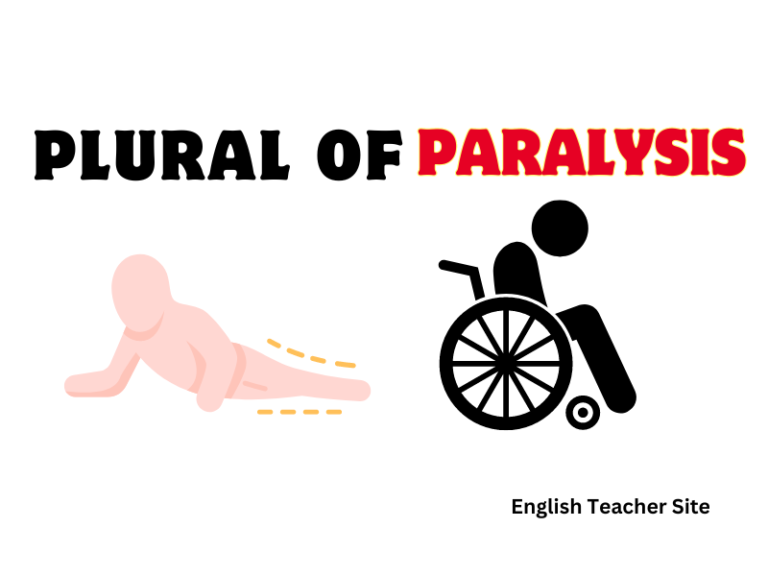What’s the Plural of Nucleus? – Understanding Singular and Plural Forms in Science

- The word “nucleus” has alternative forms in plural: “nuclei” and “nucleuses”.
- “Nuclei” is the preferred and more commonly used plural term, especially in scientific contexts.
- The choice of the plural form can be influenced by context and convention but both are acceptable in English.
The pluralization of words from Latin can be subject to rules different from those for words of Anglo-Saxon origin. For “nucleus,” the classical plural form is “nuclei,” aligning with other Latin plurals ending in “-i.” However, the adaptation of Latin words into English has also led to the formation of an alternative plural form “nucleuses,” which is used less frequently but is still considered acceptable.
What’s the Plural of “Nucleus”?
When it comes to the pluralization of “nucleus,” there are two acceptable forms:
- Nuclei – This follows the traditional Latin pluralization rule.
- Nucleuses – This adheres to the standard English approach to creating plurals by adding “-es”.
| Latin Pluralization | English Pluralization |
|---|---|
| Nuclei | Nucleuses |
Use in sentences:
- In biology class, they learned that the nuclei of the cells contain the genetic material.
- The physics lecture covered the forces within atomic nucleuses.
Plural Forms of “Nucleus”
Both plural forms are equally correct, but “nuclei” is more commonly used, especially in formal and academic contexts. To ensure proper usage, consider the audience and the context in which you are writing or speaking.
- Academic Writing or Speaking: Use nuclei
- Less Formal Contexts: Either nuclei or nucleuses can be used based on personal preference.
| Context | Preferred Plural Form |
|---|---|
| Academic Writing/Speaking | Nuclei |
| Less Formal Contexts | Nuclei/Nucleuses |
What’s the Singular of “Nucleus”?
The term “nucleus” is singular in form and is derived from Latin, where it traditionally refers to a “kernel” or “core”.
When discussing the word from a linguistic standpoint, the form “nucleus” remains unchanged as the subject of this particular section.
Below are two tables that provide a quick reference for the uses of the singular “nucleus” in both biological and non-biological contexts:
| Biological Context | Usage |
|---|---|
| Cell Biology | The nucleus contains the cell’s chromosomes. |
| Neuroscience | A group of neuron cell bodies in the brain is often termed a nucleus. |
| Non-Biological Context | Usage |
|---|---|
| Astronomy | In a comet, the nucleus refers to the solid core composed of ice and dust. |
| Linguistics | “Nucleus” might denote the central part of a syllable, typically a vowel. |
In educational materials, presentations, or discussions, “nucleus” will often come accompanied by descriptors appropriate to its context:
- The nucleus is vital to cell function.
- An atom’s nucleus contains protons and neutrons.
Defining the Word “Nucleus”
The term nucleus originates from the Latin word ‘nuculeus’, meaning “little nut” or “kernel”. In the scope of cellular biology, it refers to the membrane-bound structure that contains the chromosomes and controls the activities of the cell. Moreover, in the field of physics, the nucleus is the central and most vital part of an atom, consisting of protons and neutrons.
| Biology | Physics |
|---|---|
| The command center of a cell | Central part of an atom |
| Contains genetic material (DNA) | Composed of protons and neutrons |
| Enclosed in a nuclear envelope | Influences the atom’s mass and stability |
On a broader cultural level, ‘nucleus’ is utilized metaphorically to denote the central or primary part of a larger system or group. Within a company, for instance, a core group of employees could be described as its nucleus, implying their crucial role in the organization’s function.
- Essential in maintaining cell life and replication
- Critical for atomic integrity and structure
- Symbolic representation of centrality in various contexts
In each of its uses, the term emphasizes centrality and importance. Whether it references the administrative hub of a cell or the compact heart of an atom, ‘nucleus’ consistently underscores the pivotal role of the component it describes.
Other Latin Nouns
Singular to Plural Transformation:
Latin nouns often transform from singular to plural with distinct endings. Here are two common types of transformations:
- Nouns ending in -us typically change to -i for the plural.
- Nouns ending in -um or -on often change to -a for the plural.
Examples of Latin Nouns in English:
Below are tables illustrating a few examples.
Latin Nouns Ending in -us:
| Singular | Plural |
|---|---|
| alumnus | alumni |
| focus | foci |
| fungus | fungi |
Latin Nouns Ending in -um or -on:
| Singular | Plural |
|---|---|
| datum | data |
| medium | media |
| criterion | criteria |
Common Usage:
Many Latin plurals are used in English in their original form, retaining the Latin pluralization rule. Consider the following:
- Radius becomes radii, often used in mathematics and engineering.
- The term bacterium converts to bacteria, widely utilized in biology and medicine.
Examples of the Word “Nucleus” Used in Sentences
Biological Context:
- The nucleus of a cell contains chromosomes and operates as the control center for cellular activity.
- Biologists observed that some nuclei divide through a process called mitosis.
Group/Organization Context:
- She was considered the nucleus of the research team, her insights driving the project forward.
- The small group of activists formed the nucleus of the movement.
To illustrate the use of “nucleus” and “nuclei” in different contexts, the following tables provide examples:
Table 1: Nucleus in Biology
| Singular Sentence Example | Plural Sentence Example |
|---|---|
| The nucleus is surrounded by a nuclear envelope. | The two nuclei seemed to behave independently. |
| Inside the nucleus, DNA transcription takes place. | Only a few cells contained multiple nuclei. |
Table 2: Nucleus in Organizations
| Singular Sentence Example | Plural Sentence Example |
|---|---|
| The CEO is the nucleus of the corporation, giving strategic direction. | The core team members were the active nuclei of the project. |
| The lead scientist is often the nucleus of groundbreaking research. | The subsidiary companies act as independent nuclei within the conglomerate. |
Examples of “Nuclei” Used in Application
Biology:
In biology, nuclei refer to the central organelles found within eukaryotic cells. These organelles house the genetic material, DNA, which is crucial for heredity and the functioning of life.
- Cellular Functions and Structure:
- The nuclei contain chromosomes.
- They are responsible for regulating gene expression.
- Nuclei organize the cell’s activities, such as growth and reproduction.
Physics:
In physics, nuclei are the core of atoms where protons and neutrons are bound together.
- Atomic Physics Applications:
- The nuclei determine the identity of an element.
- They play a role in the phenomenon of radioactivity.
- Studying atomic nuclei is essential for nuclear physics and understanding nuclear energy.
Astronomy:
Nuclei also describe the solid central cores of comets, composed mostly of ice and dust covered with organic molecules.
- Astronomical Observations:
- Comet nuclei are often observed using telescopes when near the Sun.
- The understanding of comet nuclei aids in the study of the solar system’s formation.
Here are two tables to further elucidate the applications of “nuclei” in different contexts:
| Field | Application of “Nuclei” |
|---|---|
| Biology | Genetic information storage and regulation |
| Physics | Element identification, nuclear reactions |
| Example in Sentence | Field |
|---|---|
| The biologist examined the nuclei of cells. | Biology |
| The astrophysicist studied comet nuclei. | Astronomy |
| Physicists observed transmutations of nuclei. | Physics |
Origin of the Word “Nucleus”
The term nucleus has its roots deep in the Latin language. It originally meant “kernel” or “core,” signifying something essential at the heart of a larger body. It first appeared in English in the late 17th century.
The transformation from Latin to English involved several steps:
| Latin Origin | Meaning |
|---|---|
| Nux | Nut |
| Nucula | Little nut |
| Nucleus | Diminutive of nux, referring to the “kernel” or “inner part” |
The usage of the word expanded in the scientific community to denote central objects within cells and atoms.
- Biology: Refers to the membrane-bound structure within cells that contains genetic material
- Physics: Defines the central part of an atom made up of protons and neutrons
The plural form of nucleus, “nuclei,” adheres to the original Latin pluralization. Here’s a brief breakdown of the singular and plural forms:
| Singular | Plural |
|---|---|
| Nucleus | Nuclei |
These forms showcase how the word has maintained its linguistic integrity while being adopted into English. Over time, “nucleus” has become a metaphor in various fields to indicate a central or key component around which other parts are grouped or collected, reinforcing the concept of a core element fundamental to the structure of something larger.
Sources
2. Harper Douglas, “Etymology of nucleus,” Online Etymology Dictionary.
3. National Cancer Institute, “nucleus“.
My name is Khamis Maiouf. I am the creator of the English Teacher Site, dedicated to providing valuable resources and insights for students around the world. With a passion for education and a commitment to helping students enhance their skills, I aim to make English teaching more effective and enjoyable for both educators and students.






